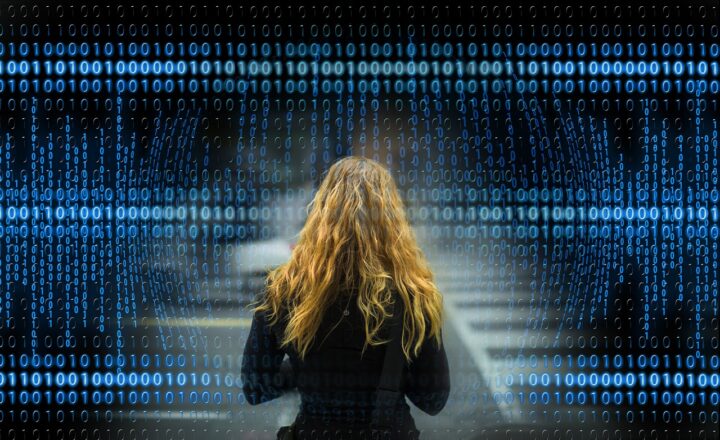The Fascinating World of Mathematical Paradoxes and How They Challenge Our Understanding
November 12, 2024

Mathematics is not only a field of study; it’s a universe where logic meets imagination. Within this universe exist mathematical paradoxes—intriguing contradictions that challenge our perceptions and understanding of mathematical concepts. These paradoxes not only provoke thought but also reveal the complexities and the beauty of mathematics.
1. What is a Mathematical Paradox?
A mathematical paradox can be defined as a statement or a proposition that, despite seemingly valid reasoning from true premises, leads to a conclusion that appears contradictory or illogical. At the heart of these paradoxes lies complex notions that may unsettle our intuition about numbers, infinity, time, and certainty.
Mathematical paradoxes can take various forms, including:
- Self-Reference: This occurs when a statement refers to itself. For example, the statement “This sentence is false” is self-referential and creates a paradox.
- Infinite Sets: Many paradoxes arise from the study of infinite sets and their properties, such as the famous Cantor’s paradox.
- Operational Contradictions: Some paradoxes emerge from mathematical operations that yield contradictory results under certain conditions, like the Barber Paradox.
Each of these types not only invites us to ponder the structure of mathematics but also pushes the boundaries of our understanding.
2. Famous Paradoxes and Their Implications
Several mathematical paradoxes have gained notoriety over the years, capturing the interest of mathematicians and philosophers alike. Let’s explore a few of the most famous examples:
2.1. The Barber Paradox
A classic example of a self-referential paradox, the Barber Paradox, poses the question: “In a town, there is one barber who shaves all those who do not shave themselves. Does the barber shave himself?” If he does shave himself, according to the definition, he cannot shave himself. If he does not shave himself, then he must shave himself. This paradox raises fundamental questions regarding set membership and self-reference.
2.2. Zeno’s Paradoxes
Zeno of Elea proposed several paradoxes that address motion and division. One of the most famous, Achilles and the Tortoise, illustrates that a faster runner (Achilles) will never catch up to a slower one (the tortoise) if the tortoise has a head start. Each time Achilles reaches the point where the tortoise was, the tortoise moves ahead slightly. This paradox challenges our understanding of motion, infinity, and limits.
2.3. Russell’s Paradox
Discovered by philosopher and mathematician Bertrand Russell, this paradox arises from naive set theory, questioning the set of all sets that do not contain themselves. If such a set exists, it leads to a contradiction: if it contains itself, it does not; if it doesn’t contain itself, then it must. Russell’s Paradox led to significant developments in modern logic and set theory, prompting mathematicians to carefully define the foundation upon which set theory stands.
3. Implications of Mathematical Paradoxes
Mathematical paradoxes serve as more than mere curiosities; they have profound implications:
- Rethinking Foundations: Paradoxes reveal the need for solid mathematical foundations, as seen in the handling of set theory. They inspire mathematicians to refine and rethink axioms and proofs.
- Insights into Infinity: Many paradoxes involving infinity, like Cantor’s, invite deeper exploration into understanding different sizes of infinity, reshaping our view of numbers and the infinite.
- Philosophical Reflection: Paradoxes provoke philosophical inquiries into logic, truth, and reason, providing a rich intersection between mathematics and philosophy.
These implications highlight how paradoxes shape not only mathematical thought but also broader philosophical discussions on knowledge and reality.
4. The Role of Paradoxes in Mathematical Discovery
Mathematical paradoxes have driven significant discoveries. They often lead to new areas of research, innovative theories, and advanced mathematical techniques. Take, for instance:
- Gödel’s Incompleteness Theorems: Proving that within a given mathematical system, there are propositions that cannot be proven or disproven from within that system, Gödel’s findings arose from paradoxical results, re-establishing the boundaries of mathematical proof.
- Cantor’s Set Theory: Paradoxes in understanding infinities led to Cantor devising a rigorous theory of sets, thus expanding mathematics into new dimensions of size and quantity.
- Computational Mathematics: Paradoxes related to algorithms and computability have spurred advancements in computational mathematics, enhancing our understanding of what it means to solve mathematical problems efficiently.
In essence, paradoxes serve as catalysts for growth and exploration in mathematics, instigating continuous inquiry and fascinating discoveries.
5. Embracing Paradoxes in Learning
Understanding mathematical paradoxes is essential for well-rounded mathematical education:
- Critical Thinking: Engaging with paradoxes fosters critical thinking, inviting learners to analyze and question established truths and assumptions in mathematics.
- Encouraging Creativity: Paradoxes promote creative problem-solving approaches, inspiring mathematicians to think outside conventional frameworks.
- Deepening Understanding: Grappling with paradoxical situations enhances comprehension of abstract concepts, like infinity and convergence, leading to deeper mathematical insights.
Incorporating discussions around paradoxes in mathematics curricula can invigorate the learning environment, providing students with tools to explore beyond the borders of established knowledge.
Conclusion
Mathematical paradoxes are gateways into advanced mathematical thinking and philosophical reasoning. They invite us to question the very foundations of mathematics while revealing the intricacies of numbers and concepts. Engaging with these paradoxes not only deepens our understanding of mathematics but also enhances our appreciation for the beauty and complexity inherent in this discipline.
As students, educators, and mathematicians, acknowledging and embracing these paradoxes can lead to exciting discoveries and a richer understanding of not just math but the world around us. The next time you encounter a mathematical paradox, take a moment to dwell not on the seeming contradiction but on the opportunity it presents for exploration and learning!








